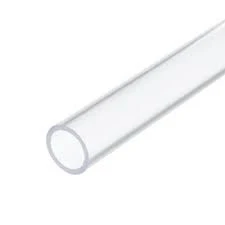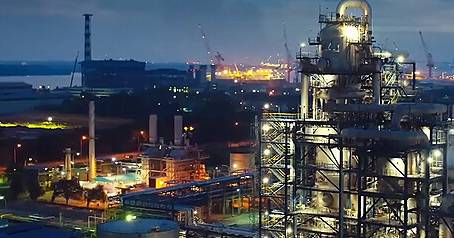Feb . 10, 2025 12:29 Back to list
HDPE drainage and irrigation pipe
High-Density Polyethylene (HDPE) water pipes are rapidly gaining attention in the plumbing and waterworks industry for their unmatched performance, durability, and versatility. In a world where infrastructure demands are ever-increasing and environmental consciousness is paramount, HDPE pipes offer a forward-thinking solution that addresses multiple challenges faced by traditional piping systems.
The environmental credentials of HDPE water pipes further bolster their standing in sustainable solutions. They are made from non-toxic materials, ensuring that water quality is not compromised. Furthermore, HDPE is fully recyclable, aligning with global initiatives to reduce plastic waste and promote circular economies. Experts in environmental engineering recommend HDPE pipes due to their low carbon footprint in both production and application, driving eco-friendly practices in infrastructure development. Authoritative bodies, such as the American Water Works Association (AWWA) and the Plastic Pipe Institute (PPI), have recognized and certified HDPE water pipes, reinforcing their credibility and trustworthiness. These organizations have established stringent standards and guidelines ensuring that HDPE pipes meet rigorous safety and quality benchmarks. Users can trust that adopting HDPE solutions means adhering to industry-leading standards, as supported by countless case studies and successful implementations worldwide. Furthermore, the economic implications of transitioning to HDPE water pipes are compelling. While the initial material costs may be higher compared to traditional alternatives, the long-term savings realized through reduced maintenance, extended service life, and enhanced efficiency make HDPE a cost-effective choice. Financial specialists who perform lifecycle assessments often conclude that the return on investment for HDPE is significant, especially as infrastructure-focused funding trends toward sustainable and resilient design. In conclusion, the adoption of HDPE water pipes is not merely a trend but an informed decision backed by extensive research and effective real-world application. Its unparalleled benefits in terms of durability, installation efficiency, environmental impact, and overall cost-effectiveness make it the preferred choice for future-proofing water infrastructure. As industries evolve, so too must the technologies they employ, and HDPE represents a pivotal shift towards more sustainable, robust, and reliable piping systems. Any organization or municipality striving to enhance their water distribution and management systems will find HDPE to be an invaluable asset, trusted by professionals and validated by authorities worldwide.


The environmental credentials of HDPE water pipes further bolster their standing in sustainable solutions. They are made from non-toxic materials, ensuring that water quality is not compromised. Furthermore, HDPE is fully recyclable, aligning with global initiatives to reduce plastic waste and promote circular economies. Experts in environmental engineering recommend HDPE pipes due to their low carbon footprint in both production and application, driving eco-friendly practices in infrastructure development. Authoritative bodies, such as the American Water Works Association (AWWA) and the Plastic Pipe Institute (PPI), have recognized and certified HDPE water pipes, reinforcing their credibility and trustworthiness. These organizations have established stringent standards and guidelines ensuring that HDPE pipes meet rigorous safety and quality benchmarks. Users can trust that adopting HDPE solutions means adhering to industry-leading standards, as supported by countless case studies and successful implementations worldwide. Furthermore, the economic implications of transitioning to HDPE water pipes are compelling. While the initial material costs may be higher compared to traditional alternatives, the long-term savings realized through reduced maintenance, extended service life, and enhanced efficiency make HDPE a cost-effective choice. Financial specialists who perform lifecycle assessments often conclude that the return on investment for HDPE is significant, especially as infrastructure-focused funding trends toward sustainable and resilient design. In conclusion, the adoption of HDPE water pipes is not merely a trend but an informed decision backed by extensive research and effective real-world application. Its unparalleled benefits in terms of durability, installation efficiency, environmental impact, and overall cost-effectiveness make it the preferred choice for future-proofing water infrastructure. As industries evolve, so too must the technologies they employ, and HDPE represents a pivotal shift towards more sustainable, robust, and reliable piping systems. Any organization or municipality striving to enhance their water distribution and management systems will find HDPE to be an invaluable asset, trusted by professionals and validated by authorities worldwide.
Share:
Next:
Latest news
-
Durable PP Rigid Sheet: Versatile & High-Quality Plastic Panels
NewsAug.08,2025
-
Premium Glossy PP Rigid Sheet – Durable & Versatile
NewsAug.07,2025
-
High-Quality HDPE Sheet | Durable Plastic Panels
NewsAug.06,2025
-
High-Precision PVC Rigid Sheets for Vacuum Forming | AI-Optimized
NewsAug.05,2025
-
Durable PVC-M Water Supply Pipes | 60-Year Life
NewsAug.04,2025
-
Premium HDPE Water Supply Pipes: Durable & Leak-Proof
NewsAug.03,2025

